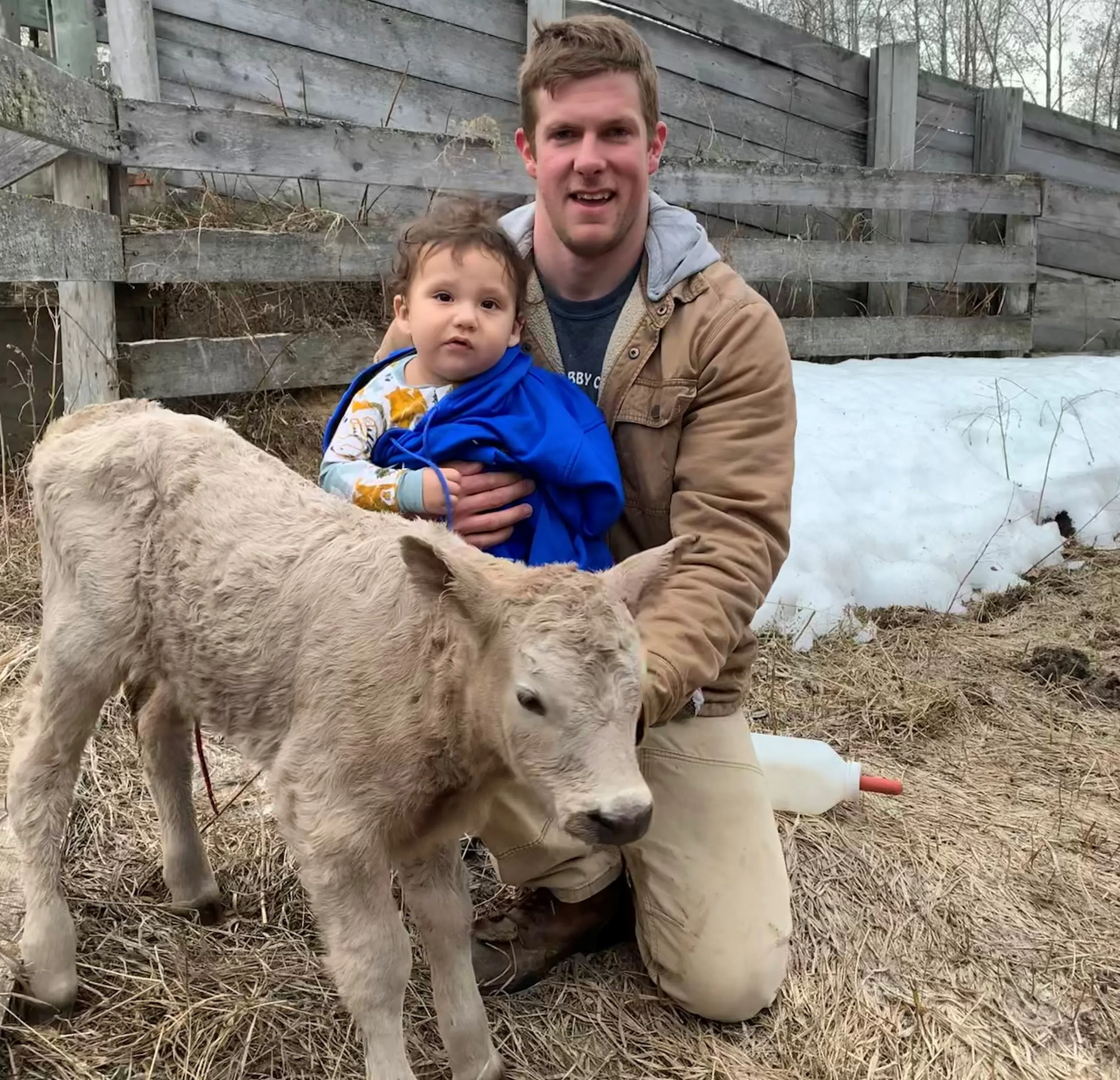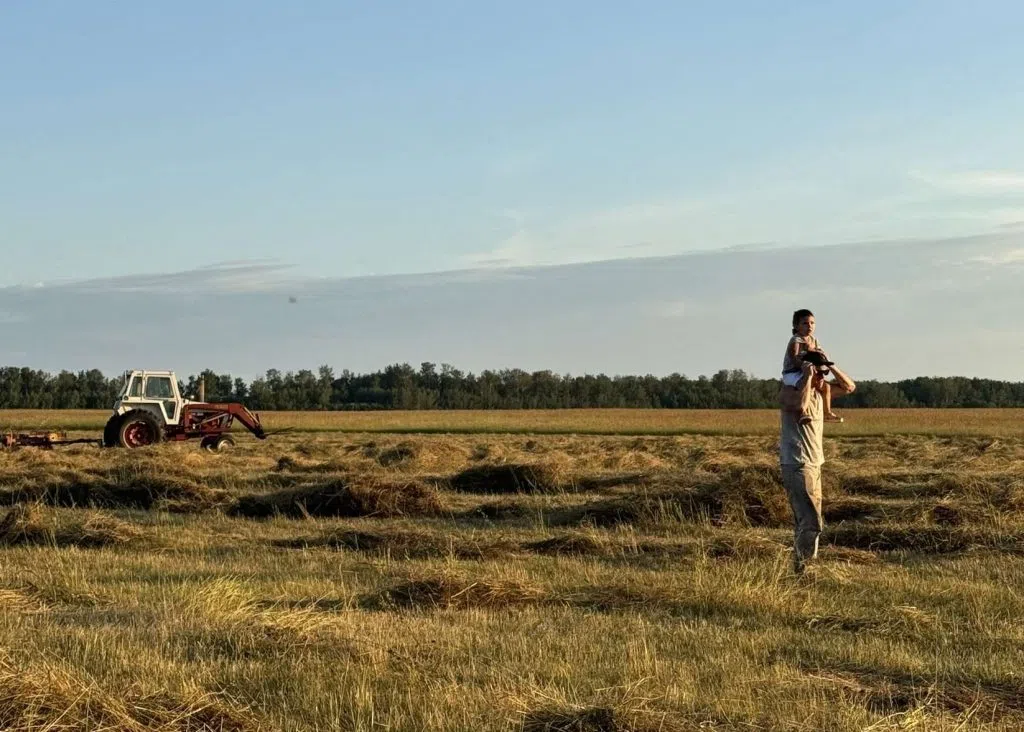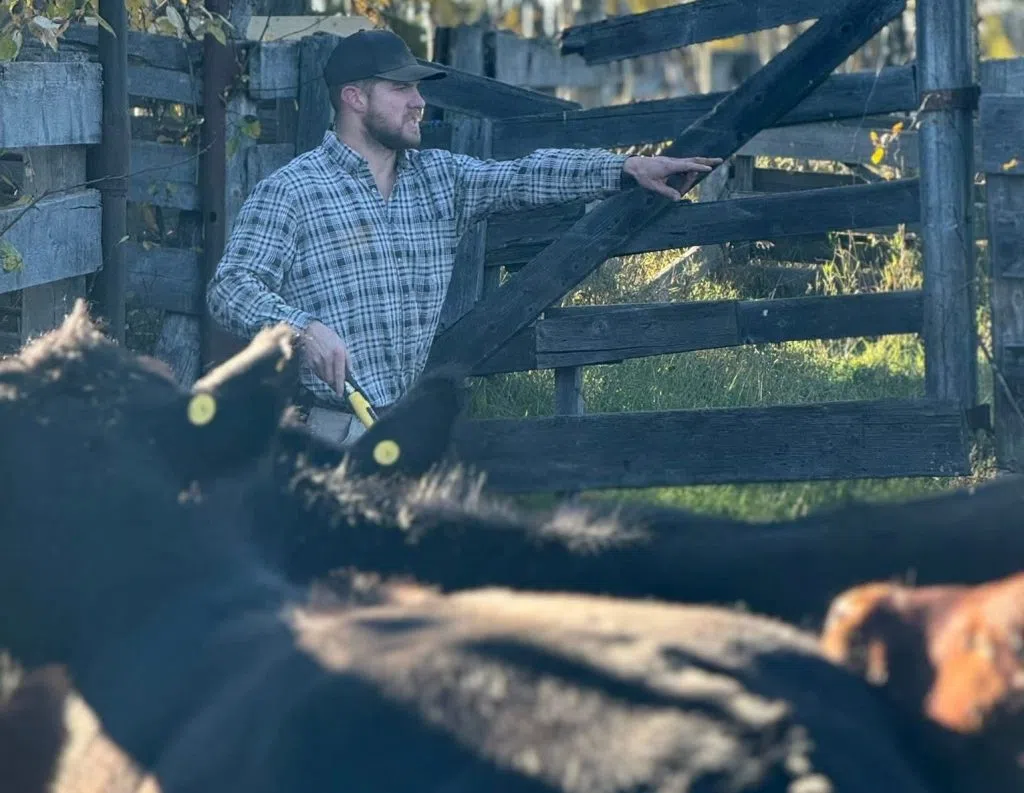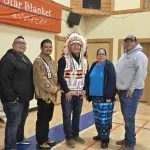
Reviving one of the oldest occupations
In Saskatchewan, farming and ranching is an industry that is not exactly brimming with youthful vitality. The average age of a farmer or rancher in the province is 56 years old, with almost two thirds of all farmers over the age of 55.
The Young Agrarians are trying to change that with young achievers like Kole Norman.
Norman, a member and land officer at Flying Dust First Nation, owns a small cattle ranch on his home reserve. Last year, he stumbled across a post for a farmer-to-farmer program through the Young Agrarians’ Business Mentorship Network.
The program, which started in British Columbia, supports new and young farmers to develop skills, knowledge, and confidence to grow their business.
“I reached out to see if it could be a good fit, or if I could get any value out of it. I decided it would be a very good idea,” said Norman.
He was selected for the program and paired up with a local farmer, Bluescette Campbell, who lives only 45 minutes from Norman, and has her own successful cattle ranch.
Norman’s cattle ranch has 55 pairs of cattle – around 115 total animals, including horses. A number that grew as a result of the mentorship program.
“I was initially planning to stay at 25 pairs of cattle. Then following this program, I bumped the goal posts up to 60. Now I’m thinking about going to 80 pairs,” said Norman.

In the program, Norman was able to have regular virtual meetings with Campbell, and others in the program, discussing issues on the farm, breakthroughs, financial matters, and any other particular questions they had.
With Campbell, they discussed farming strategies that her family had particular expertise in – rotational grazing. But Campbell opened discussions to a lot more than just cattle and fields.
“She made it clear that everything was on the table, and whatever I was having issues with, she could talk me through it,” said Norman.
“She involved my wife and son. We sat down and talked about our goals as a family and business. She incorporated everything together, and just didn’t look at it from a money making point of view.”
That sort of holistic mentorship was invaluable to Norman. Unlike many in the industry, farming doesn’t run in the family for Norman. He got into it from his lifelong love of animals, and growing up in a family that broke, trained, and raced horses. But the particulars of farming weren’t something he could ask a close relative, he said.

Norman currently has 55 pairs of cattle, and plans to expand following his mentorship experience.
“I have friends in agriculture, but you don’t want to ask your buddies what to do often,” said Norman. “With Campbell, it was nice to have her to rely on. She was a safe place to ask questions.”
That farmer-to-farmer mentorship has yielded significant impacts on the mentee.
“We would go over finances, or I would bounce ideas off her on what I should plan for next year,” he said. “I got that reassurance from someone who had experience.”
To date, the program has worked with 199 farmers. When comparing the season of mentorship to the previous year, farmers see an increase in 81% in revenues, 61% in production, and 61% in land use.
For Norman, this means building something sustainable for his family.
“It gave me confidence that I’m on the right track, and that I can accomplish what I’m aiming to do,” he said. “I hope one day to pass it along to my son.”
Having the farm is therapeutic, he said, as it allows him to connect with the land, the animals, and reset after a stressful day.
“Any time I have a hard day at work, I go outside and sit with the animals and relax for a while. Take some deep breaths. Being outside, on the farm, really helps me.”
Norman said he encourages others in farming to seek out the program. The impacts could be invaluable.
“It gives you access to support when you don’t know who to ask those kinds of questions to,” he said. “I was just trying to be a sponge and get as much knowledge as possible. I think this program could do a lot of good for others as well.”

